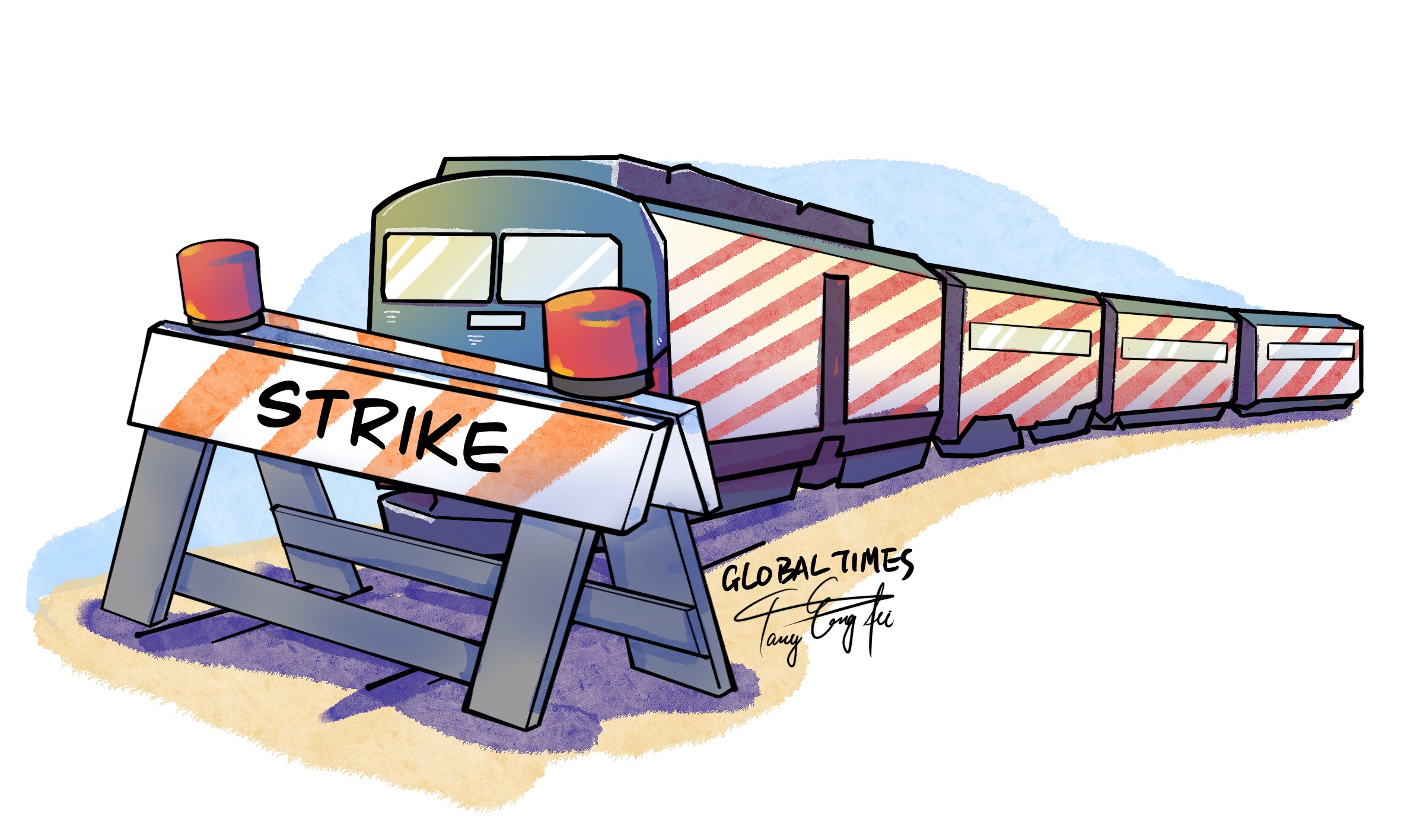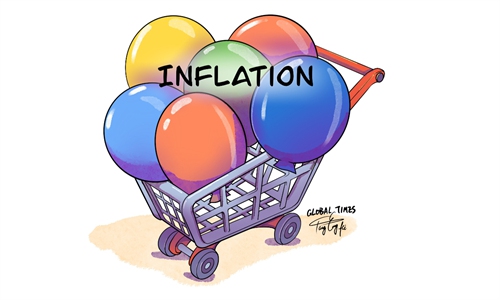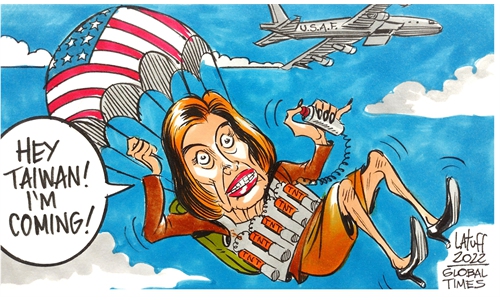
Illustration: Tang Tengfei/Global Times
With less than two weeks to go before the December 9 deadline, many are questioning whether the administration of US President Joe Biden can head off a catastrophic nationwide rail strike that would "devastate the economy."The likelihood of a strike that would paralyze US' rail traffic grew recently when the largest of the 12 rail unions rejected management's latest offering that included 24 percent raises and $5,000 in bonuses, according to the Associated Press (AP).
However, thanks to the Railway Labor Act, US Congress has the ability to impose an agreement on rail workers to avert a strike. According to media reports, Biden has called on Congress to intervene and avert looming strike by forcing the workers' unions to accept the deal negotiated earlier this year.
There is still a high probability that a rail strike can be avoided or postponed under government intervention. To avoid a massive blow to a fragile US economy, Washington has no choice but to sacrifice some personal interests of railway workers to calm down the situation and keep the trains running. However, efforts to force some railway workers to accept an agreement they found inadequate won't fundamentally solve the problem the US freight rail system is being confronted with.
The labor dispute on the rails highlighted yet again the challenges the US economy faces. Some railway workers said they are fed up with the cost-cutting and layoffs that have left them unable to care for themselves and their families. More importantly, the situation could get worse amid economic turmoil and persistently high inflation that has sparked a cost-of-living crisis among some low-income groups.
The Consumer Price Index was up 7.7 percent in October in the US compared with the year before. Stubbornly high inflation is reducing the real wage value of not only railway workers but also employees in other industries. Biden said in September that railway workers will see a 24 percent wage increase over the next five years, a cap on healthcare costs and better working conditions, according to the Voice of America. However, some railway workers have still rejected the tentative contract deal reached in September. They are pushing for better pay, more reliable schedules, stronger safety standards and the ability to take time off.
Biden said on Monday that a rail shutdown would devastate US economy. "Without freight rail, many US industries would shut down," the US president said. To avoid a catastrophic nationwide rail strike, it is almost certain that there will be a generous wage increase for railway workers.
The reality is that labor wages are rising in the US and have pushed up labor costs. If railway workers see a 24 percent or even more wage increase, it is possible that employees in other industries will also demand a wage increase. At the very least, their salaries should increase to reflect the rising cost of living as the US grapples with stubbornly high inflation.
Rising labor costs in the US are increasing overall manufacturing costs. The White House said in an October statement that Biden's economic agenda has already ignited a domestic manufacturing boom. However, it is too early to become optimistic about the outlook for the US manufacturing development. Labor shortages have pushed up wage growth, benefiting low-wage workers but adding to inflation risks and dragging down manufacturing growth.
How to solve the deep-seated problems such as inflation, rising labor cost, and supply chain disruption is a key issue that needs to be properly dealt with. Some said if freight trains stop rolling, the result could be chaos for business, shortages for consumers, and fresh momentum for rising prices, so a rail strike must be avoided by forcing railway workers to make compromise. However, if railway workers have to make these sacrifices, it would be a tragedy for the US economy. Efforts should be made to seek both temporary and permanent solutions to address labor dispute.
The author is a reporter with the Global Times. bizopinion@globaltimes.com.cn



